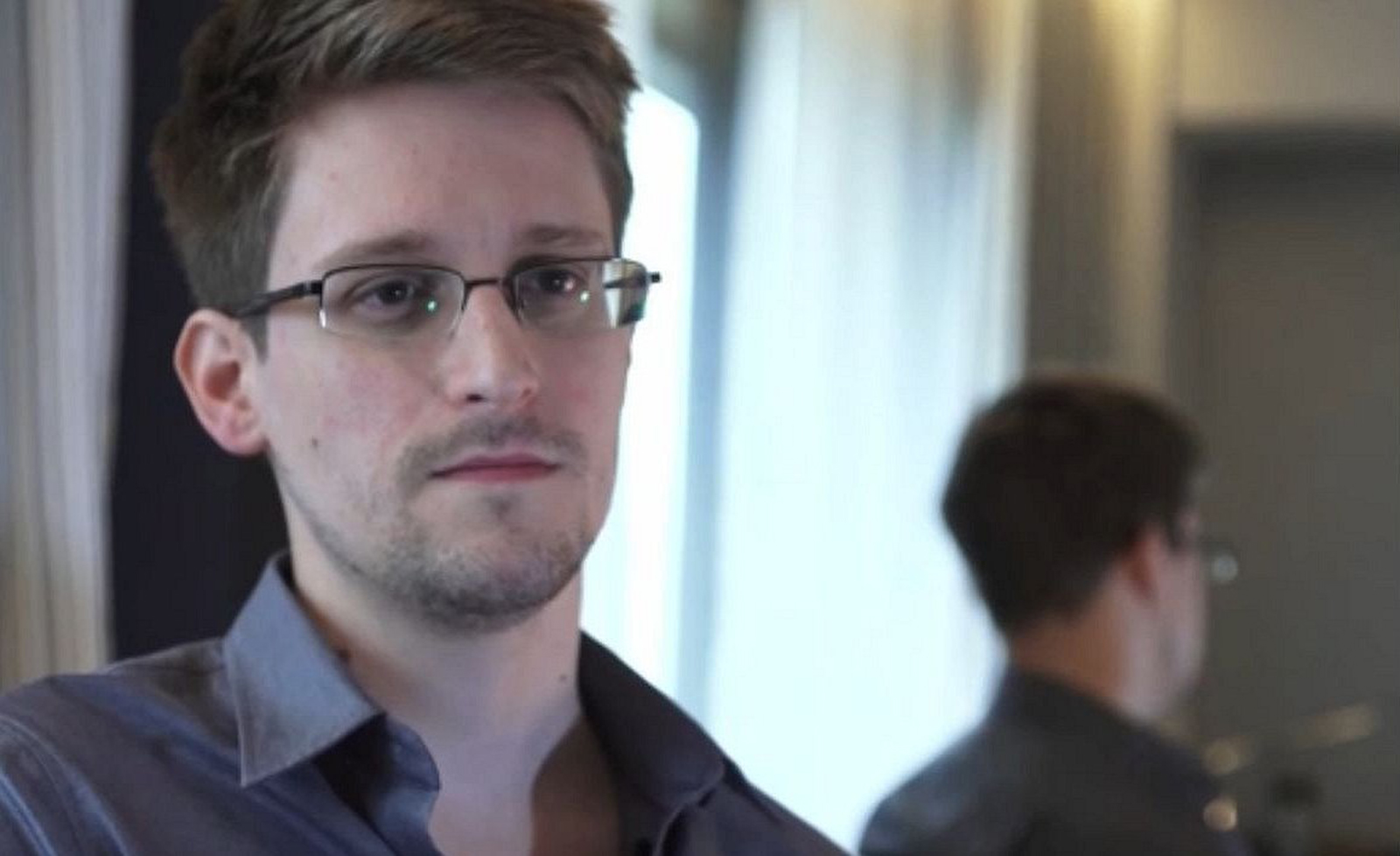The NSA scandal is one of the great faults of the Obama presidency, and one of the defining debates of the internet age. Citizenfour is about the people responsible for leaking the story, and the aftermath of said leak. Director Laura Poitras doesn’t hide the fact that she was part of Edward Snowden’s plans, but she also directs the hell out of a top notch real life thriller. After Citizenfour, I couldn’t help but feel the same paranoia as the people involved in the story and a similar fear for where the United States is headed.
After a chilling intro, Citizenfour takes the audience through the fateful 7 day meeting between, Poitras, Journalists Glen Greenwald and Ewen Macaskill, and famous leaker: NSA contractor Edward Snowden (Citizenfour was his screen name). In Hong Kong, the team talks about Snowden’s motivations and how to present the vast information he provides them. As the end of the week approaches, each participant realizes that their lives are going to change significantly, leaving their future uncertain and potentially very ominous.
Any great thriller sells fear and paranoia. Citizenfour starts with Snowden get’s Poitras’s attention by sending her a feed of all of her transactions for the past year. That information sets the stage for the 7 day meeting. Poitras shows Snowden’s understanding of the depths of Prism through how commonplace basic communication can be seized. Phones have mini-computers so they need to be disconnected; all e-mails need to be heavily encrypted; computer images cannot be shown on camera. Despite the known “conclusion” to the film, Citizenfour has several sequences evoking the chilling effects of this widespread surveillance. At one point, the fire alarm goes off, spreading dread and unease through everyone in the little hotel room. As it becomes clearer that Snowden is the leaker, the government does little things to end his normal day-to-day living like stopping rent checks or putting construction vehicles around his house. When the team releases his interview, within hours, reporters know which hotel he is at, and Snowden must escalate the exile process he knew he would have to use. Citizenfour will make most audience members rethink all my Google search entries and e-mails to friends, wondering if there would be any reason they would be on the US watch list.
After the group splits, the story takes some time examining the downfall of Snowden, Poitras, MacAskill, and Greenwald’s actions. Greenwald and MacAskill used Snowden’s information to leak to Brazil and the UK about their involvement in the NSA’s spying program, and the fallout from those reports. Poitras helps film the events, and helps with the Angela Merkle story (her cell phone history was studied). The point of these scenes is to show how Snowden is not the be all end all; others are equally angry and willing to speak out about what is going on inside the United States of Secrets. Yes, Snowden’s actions have started the national debate on privacy in the age of sharing, but when another leaker reveals that 1.2 million people in the US are on “The Watchlist,” there is still a long way to go to determine if the US needs to change its Patriot Act enabled policy.
Edward Snowden doesn’t give himself enough credit. He insists he does not know how filming works or how to act in front of the camera, but Director Poitras makes him a fascinating, enigmatic “character.” Snowden’s brilliance is evident; very often we see him explain technical jargon to these journalists so they can fully understand what is going on. His smarts cross over to his personal life; Citizenfour did not arrive at this momentous decision lightly. There was clearly lots of thought at what would happen to him, his family, and just how uncertain his future would be. His thoughts that media would make him the story were spot on: I remember a story about his girlfriend having a pole dancing Youtube channel to try to discredit him. Snowden called the journalists to leak the information so the story could break without political bias, further limiting options for the government and cementing the man’s thought process. Despite all of this information onscreen, Snowden keeps many thoughts to himself and never emotes, leaving the audience wondering exactly what is going through his mind, especially as his life is about to drastically change. Edward Snowden may not know how an onscreen persona works, but Poitras shows us that Citizenfour is inherently captivating.
Of the many chilling lines about our current state of living, one of the most scary is one where someone points out freedom and privacy are equated, and accepting a loss of privacy is accepting a loss of human rights. Citizenfour shows us the fateful day where a man decided that he needed to stand up because he felt basic human rights were being violated without giving the world a say. I highly encourage everyone enjoying the wonders of the Internet to watch Citizenfour and this Frontline piece to understand what path we have chosen, possibly unwillingly. Whether or not you agree or disagree with what Edward Snowden did, Citizenfour helps you understand how he arrived at his decision and how the consequences are still changing the world we live in.

